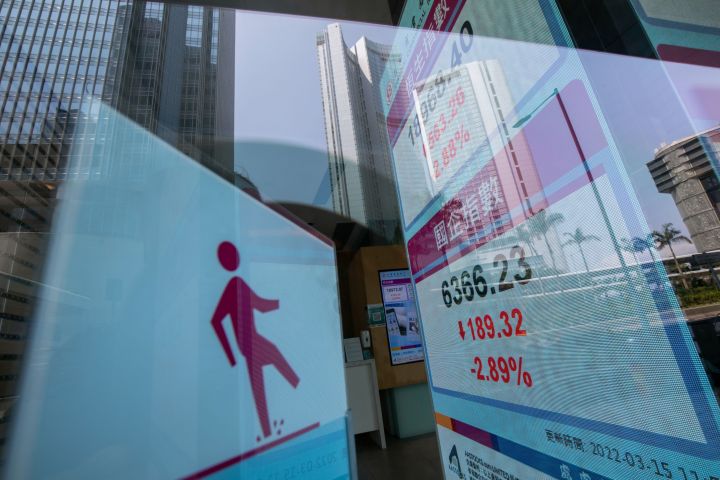Business Maverick
Asian stocks rally as Hong Kong mulls tax waiver: markets wrap

Shares in Asia rose on Friday after an upbeat day on Wall Street following jobs data that supported the case for US rate cuts.
Equities in Japan, South Korea and Australia climbed, with Hong Kong’s index leading and touching its highest level since September. US contracts were largely flat after the S&P 500 index closed less than 1% away from its all-time high on Thursday.
The Hang Seng advanced following news that regulators were considering a proposal to exempt individual investors from paying taxes on dividends earned from Hong Kong stocks bought via Stock Connect. However, onshore Chinese stocks fell as investors assessed a report saying US President Joe Biden’s administration is poised to unveil a sweeping decision on China tariffs as soon as next week.
“We’ve long been expecting more anti-China rhetoric and policies to be amplified closer to the election — and though this is surely a piece of negative news to us, and to investors in general, the marginal effect is diminishing,” said Chen Shi, fund manager at Shanghai Jade Stone Investment Management Co. Ltd. “Plus there are plenty of ways for companies to work around this.”
Australian and New Zealand government bonds edged higher. Treasuries held a Thursday rally, with the US 10-year yield staying around 4.45%, after support from a successful $25-billion sale of 30-year US bonds.
Initial applications for US unemployment benefits rose last week to the highest level since August, topping estimates, with cooling in the jobs market supporting the case for interest rate cuts. Fed Bank of San Francisco president Mary Daly said rates are currently restraining the economy, but it may take “more time” to return inflation to their goal.
“Time will tell whether it’s a one-off or part of a genuine cooldown in the labour market,” said Chris Larkin at E*Trade from Morgan Stanley. “Investors may have adjusted to the idea of the Fed waiting until September to cut interest rates, but that doesn’t mean they’re comfortable waiting indefinitely.”
Emerging market currencies were broadly higher against the greenback, extending gains from Thursday when the dollar weakened. The greenback was steady on Friday while the yen was little changed at around 155 per dollar.
Data set for release in Asia Friday includes industrial output for India and the first-quarter current account balance for China. New loans and money supply data for China may also be released as early as today.
Elsewhere, JPMorgan Chase & Co. said it was on track to include India in its emerging market debt index from June, a move that is expected to drive inflows from global investors. Meanwhile, Oversea-Chinese Banking Corp. offered S$1.4 billion ($1-billion) to buy the remaining stake in Great Eastern Holdings Ltd. that it does not currently own, in an effort to solidify its wealth management leadership position.
Oil extended gains into a third day as key technical levels provided a floor for losses while investors digested a mixed US inventories report. Gold traded slightly higher after jumping more than 1% on Thursday.
US rebound
To Doug Ramsey at Leuthold, another 10% gain in the S&P 500 isn’t out of the question, at least statistically. He analysed 80 years of data on bull-market rallies, focusing on those that happened when unemployment was this low and the economic cycle this mature. If the current rally meets the prior records for length and height, the S&P 500 would end the year at 5,705.
Apple’s stock climbed as Bloomberg News reported the company will deliver some of its upcoming artificial-intelligence features this year via data centres equipped with its own in-house processors. Nvidia Corp. led losses in chipmakers.
Blackstone Inc. President Jon Gray said economic growth will slow as stubborn inflation weighs on the Fed’s ability to begin lowering borrowing costs.
“We see a deceleration of growth,” Gray said at the Macquarie Australia Conference in Sydney on Thursday. “Central banks will be slow on the cutting of rates, because they don’t want to see a rise of inflation,” he said. “The Fed will be patient, they’ll have the opportunity to cut once this year,” he added.
If the economy is slowing, unemployment rising, inflation receding, and the Fed is expected to cut rates, there will be plenty of buyers for US Treasury notes and bonds, according to Joe Kalish at Ned Davis Research.
“But make no mistake. When conditions change, prices can change too – and quickly!”


















Comments - Please login in order to comment.